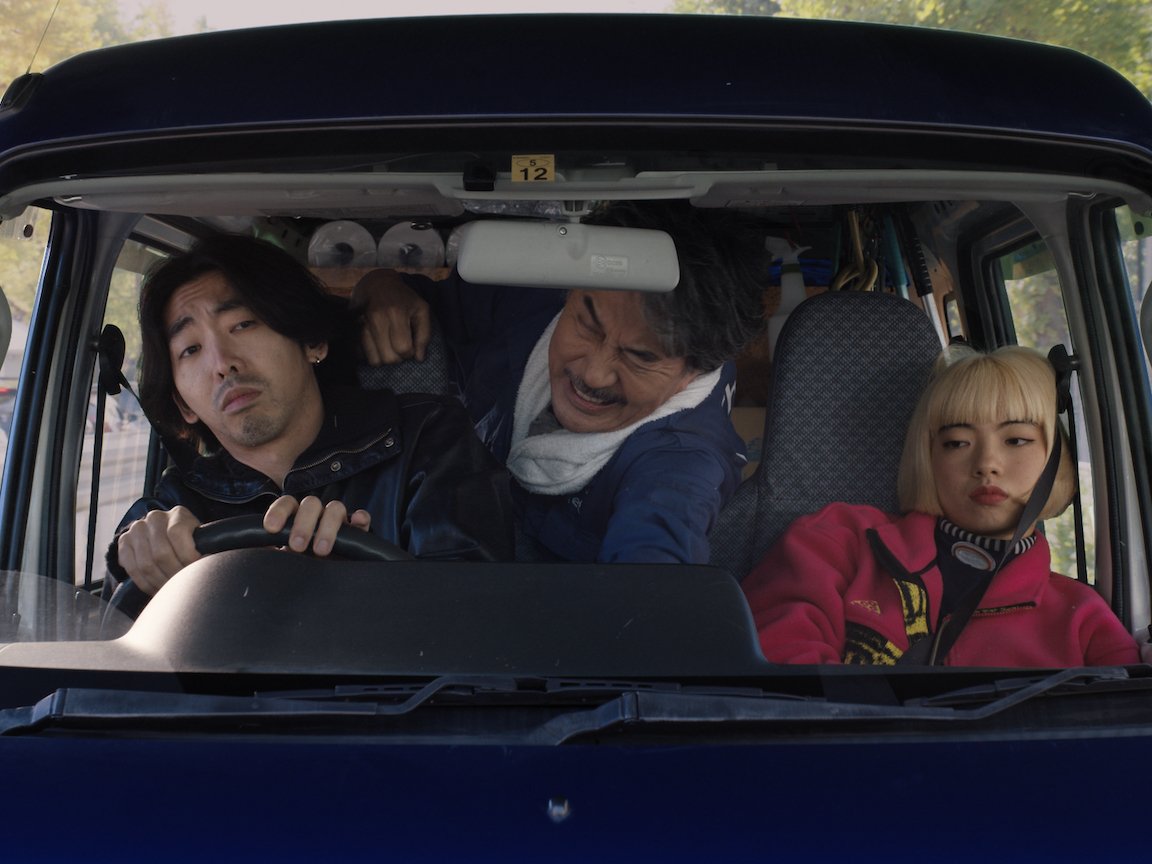Perfectly Ordinary
Wim wenders’ ode to the mundane Doesn’t work without Koji Yakusho.
Perfect Days
Director: Wim Wenders • Writer: Takuma Takasaki, Wim Wenders
Starring: Koji Yakusho, Tokio Emoto, Arisa Nakano, Aoi Yamada, Yumi Aso, Tomokazu Miura. Sayuri Ishikawa
Japan / Germany • 2hrs 4mins
Opens Hong Kong January 25 • IIA
Grade: B+
It’s hard to figure out if it’s German director Wim Wenders’ (Wings of Desire, Until the End of the World) singular picaresque philosophising or star Koji Yakusho’s always welcome, accessible Everyman presence that makes Perfect Days the very, very low-key pleasure that it is. The film started as, essentially, a propaganda project, to extoll the virtues and design innovations of Tokyo’s impeccably clean public toilets. Wenders was invited by the Tokyo Toilet Project (this is a thing) to do a series of short films pivoting on the renovation of 17 Shibuya toilets – not all 17, just the coolest ones. Well, that didn’t pan out, but what we have now is a double Cannes-winner (an Ecumenical Jury prize and an acting prize for Yakusho) and Oscar nominee. Not bad for a film ostensibly about fancy shitters.
Somewhere along the way Wenders and co-writer Takuma Takasaki hatched an unconventional slice-of-life drama that’s also the year’s (2023’s) stealthiest character study and a shout-out to the ordinary. Perfect Days was born during COVID, and if that nonsense taught (some of) us anything it’s that the check-out staff, delivery guys, stocktakers, McDonald’s cooks and the elderly ladies keeping the toilets in Hong Kong’s (and elsewhere) malls clean – and who have always kept the world moving for the rest of us – were overlooked and sneered at for their blue collar service jobs for too long. All of a sudden they were crucial to our health and well-being. Perfect Days throws them all a little love. Say thank you next time you wash your hands, ya feral.
Of course there’s much more to Perfect Days than fancy shitters. Yakusho gracefully, and with considerable soul, plays Hirayama, a Tokyo Toilet Project janitor who drives the sprawl of Tokyo everyday on his toilet beat. He cleans his assigned facilities, sometimes with help from Takashi (Tokio Emoto, Cube), who himself has a depth of humanity we too quickly assume is absent. More often than not it’s just Hirayama in his van with his beloved cassette tapes, unspooling a murderer’s row of mid-20th century classics by Lou Reed, The Velvet Underground, Patti Smith, Otis Redding and a deep cut by The Rolling Stones. Hirayama, it turns out, is a creature of habit. He takes care in his work, helps out users who baffle at Japan’s gadgetry (that would be me), lunches in the park, gets home, ditches the overalls, hits the onsen, grabs dinner at the same underground diner every night and gets in some reading before bed. Repeat. And repeat. And repeat again.
For many that repetition will be a bridge too far, but Wenders and Takasaki break things up by dropping a wild card in every so often – though nothing that explicitly tells us what Hirayama’s deal is. A funky young woman Takashi is trying to impress, Aya (Aoi Yamada) tags along for a day or two. And no, no bullshit romance blossoms between them, even though she shows an appreciation for his tape collection. On another day, his niece Niko (Arisa Nakano) lands on his doorstep, having run away from home, and from Hirayama’s sister (Yumi Aso). They have a nice time in the meantime. She goes home.
Nothing happens in Perfect Days. It’s the little details that make the film such a rewarding watch; call it Jeanne Dielman, 23 quai du Commerce, 1080 Bruxelles lite. As much as Wenders and Takasaki drop in clues, Hirayama remains something of a mystery – but not an irritating one. We don’t need answers about why he takes photos of the trees, or why he lives alone, or what’s preventing him from a modern music playlist. That’s not the point. There’s tremendous empathy in Wenders portrait of an everyday existence, and Yakusho’s career-best performance catches you by surprise. His realisation of simple contentedness, and his respect for Hirayama being okay with having zero desire to fly to outer space on a dick rocket that proves what “greatness” you’ve achieved, is an organic pleasure. Which is not to say there’s no there, there. The coda that reunites Hirayama and his sister is as emotionally loaded as any melodrama that spelt out the backstory; props to Aso for giving the sequence extra depth. Another pleasure is Wenders and DOP Franz Lustig (Anselm) for never fetishising the city and avoiding cliché. There is no Tokyo Tower here, no Harajuku Girls, but there are some truly fantastic toilets. — DEK



